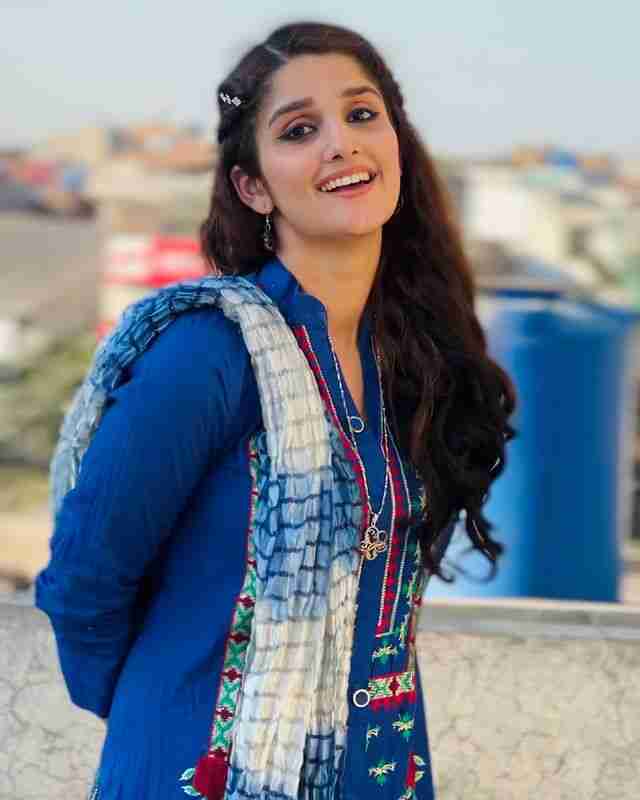Forced Marriage Novels Shed Light on Social and Emotional Struggles

Tania Tahir novels are a unique genre that explores the emotional struggles individuals face when they are coerced into unions. These stories typically revolve around the conflict between societal or familial expectations and personal desires. The protagonist often struggles with their emotional turmoil, questioning their role in the forced marriage.
The tension in these novels lies in the psychological effects of being trapped in a relationship that one did not choose. Many times, the forced marriage acts as a backdrop for personal growth, highlighting the journey from resentment to acceptance. Forced marriage novels can inspire readers to think about autonomy, love, and personal freedom within a restrictive environment.
Contents
What Are Forced Marriage Novels?
Forced marriage novels focus on individuals forced into marriages by external pressures, often cultural, familial, or societal. The central conflict involves the protagonist’s lack of choice, creating emotional and psychological challenges. These novels examine the emotional toll that comes with being forced into a union one does not desire.
In these novels, the characters are often placed in difficult positions where they have to reconcile their desires with external expectations. The story typically portrays how the characters navigate through these challenges and explore themes of resistance, compliance, and growth. Forced marriage novels provide insight into human resilience in situations of external control.
The Emotional Turmoil in Forced Marriages
The emotional impact of forced marriages is a central theme in many forced marriage novels. Characters often start off feeling trapped, frustrated, or resentful towards their situation. The lack of choice leads to a deep internal conflict, creating a compelling narrative that resonates with readers.
As the story unfolds, the characters typically undergo emotional growth, transforming from frustration to finding strength. Some may learn to accept their circumstances, while others may seek ways to break free. Forced marriage novels highlight how individuals can find empowerment even in the most restrictive circumstances.
| Aspect | Description |
|---|---|
| Initial Feelings of the Protagonist | Characters often start with feelings of anger, frustration, and resentment towards their forced marriage. This initial emotional conflict sets the stage for the story. |
| Psychological Strain | The lack of personal choice in the relationship creates deep psychological strain, leading to inner turmoil and feelings of helplessness and betrayal. |
| Conflict | The emotional tension arises from the clash between the character’s personal desires and the external pressures of their situation. This conflict is central to the narrative. |
| Emotional Growth | As the story unfolds, the protagonist often experiences emotional growth, moving from frustration to resilience and, in some cases, acceptance of the situation. |
| Search for Empowerment | Characters begin to seek empowerment within their forced circumstances, finding ways to cope, adapt, or take control of their emotional journey. |
The Role of Love in Forced Marriage Novels
In forced marriage novels, love is often slow to develop or completely absent in the beginning. The initial relationship between the characters is typically based on obligation rather than affection. Over time, however, many novels show that love can emerge unexpectedly, even in forced unions.
Love in these novels is often a complex journey, with the characters starting with anger or resistance. As they face challenges together, they may begin to understand one another and develop a deeper bond. This gradual evolution of love is a central theme in many forced marriage novels, making them emotionally rich.
The Cultural and Societal Context in Forced Marriage Novels
The cultural context in which forced marriage novels take place is crucial to understanding the characters’ experiences. In many societies, forced marriages are deeply ingrained as cultural or familial practices. These novels often explore the impact of tradition on the personal freedom of individuals, especially women.
These novels serve as a reflection of the broader societal pressures that dictate who people marry and why. The protagonist often struggles to break free from these cultural expectations, leading to a story that highlights the clash between individual desires and societal norms. Forced marriage novels provide a window into these cultural struggles and personal battles.
Popular Forced Marriage Novels

There are several forced marriage novels that stand out for their portrayal of emotional depth and cultural complexity. Tania Tahir’s novels often explore the delicate balance between family expectations and personal freedom. Her characters navigate the pressures of forced unions, offering insight into the emotional strain that comes with these circumstances.
Another well-known forced marriage novel is Toor e Mohabbat Novel. This novel takes a contemporary look at love, duty, and societal pressure in forced marriages. It portrays how individuals navigate the complexities of these unions, providing readers with a story that resonates on both an emotional and cultural level.
| Novel | Author | Description | Key Themes |
|---|---|---|---|
| Tania Tahir’s Novels | Tania Tahir | Tania Tahir’s novels explore the emotional complexities of characters caught in forced marriages due to familial obligations. They depict emotional strain and growth. | Family Expectations, Emotional Conflict, Cultural Struggles |
| Toor e Mohabbat Novel | Unknown (Author) | Toor e Mohabbat Novel presents a contemporary view on love, duty, and societal pressure in forced marriages, showcasing the personal struggles of its characters. | Love & Duty, Societal Pressure, Personal Growth |
Social Implications of Forced Marriages
While forced marriage novels often highlight emotional journeys, they also raise awareness about the legal implications of forced unions. Forced marriages are illegal in many countries, but they continue to occur due to cultural or familial pressure. These novels often emphasize the challenges individuals face when their autonomy is taken away by such societal practices.
By highlighting these real-world issues, forced marriage novels bring attention to the legal protections that need to be in place. Many governments and organizations are working to end forced marriages and provide support for individuals at risk. These novels help readers understand the broader social and legal impact of forced marriages.
| Aspect | Impact |
|---|---|
| Personal Autonomy | Deprives individuals of the right to choose their partners. |
| Emotional Harm | Leads to psychological distress and mental health issues. |
| Cultural Pressure | Reinforces patriarchal systems and restrictive norms. |
| Legal Awareness | Promotes reforms and legal protections against forced unions. |
| Generational Impact | Perpetuates the cycle of forced marriages in future generations. |
Conclusion
Forced marriage novels offer an emotional and cultural exploration of love, control, and societal expectations. These stories dive deep into the struggles of characters who are thrust into marriages they did not choose. Through these novels, readers are able to explore the complexities of personal autonomy and the societal pressures that shape relationships.
Through stories like Tania Tahir’s novels and Toor e Mohabbat Novel, readers gain a deeper understanding of the human experience within the confines of forced unions. Forced marriage novels challenge readers to think critically about cultural practices and the importance of personal freedom in shaping one’s future.





